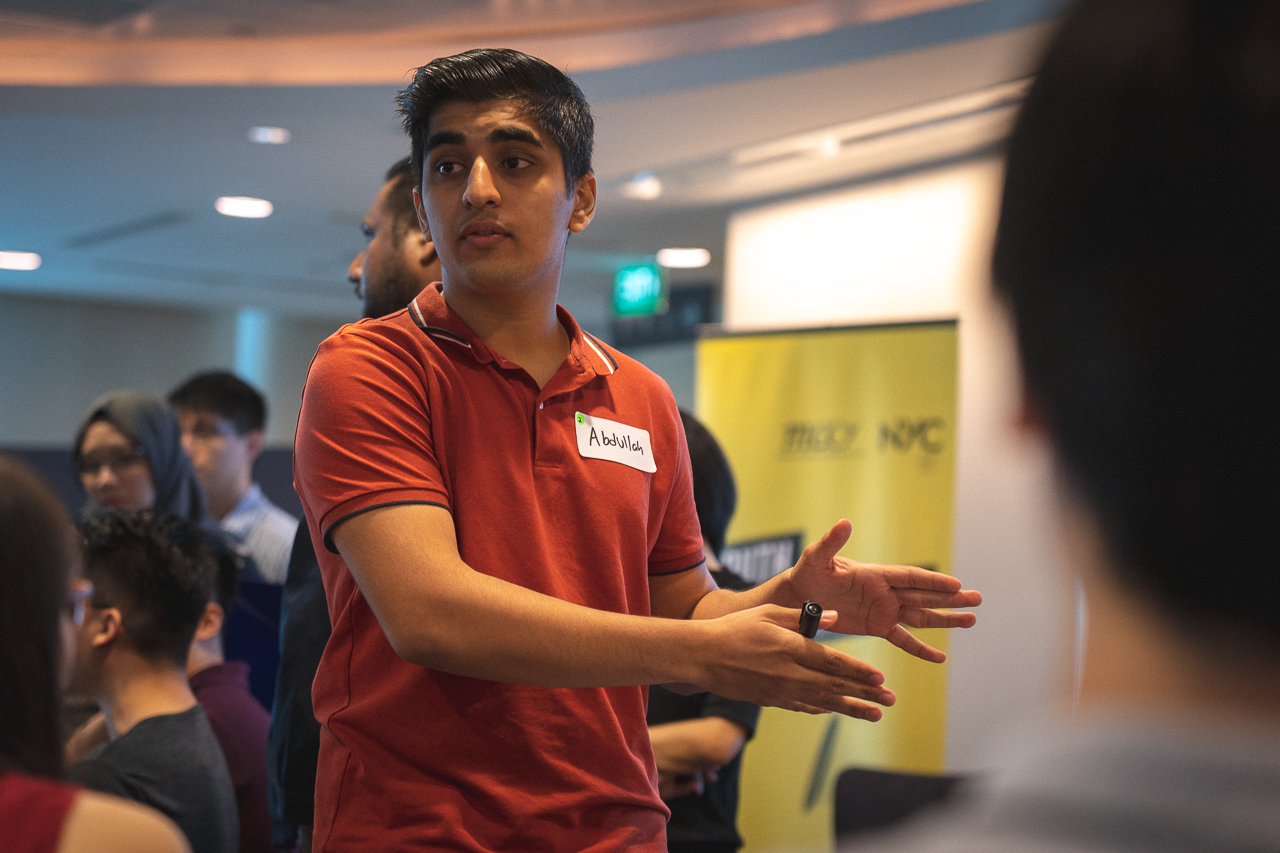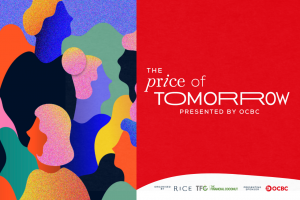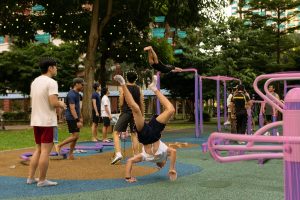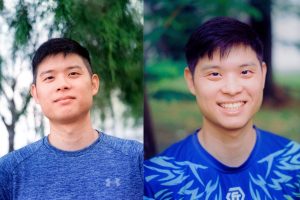As soon as I push the heavy door in front of me open, close to 50 pairs of eyes swivel in my direction. Dang. Even though I’m 3 minutes early, I might as well be late. The room is packed.
Sheepishly, I look for a discreet seat in the corner to hide my embarrassment. But I can’t find one. The room’s chairs have been arranged in neat little circles, on which fresh-faced youths talk excitedly amongst themselves. Tacked to the walls beside them: pieces of paper that illustrate effective brainstorm techniques.
At precisely 10 AM, a booming voice fills the air, instructing each group to appoint a leader who’ll have to stay and present the group’s problem statement and preliminary ideas, while everyone else moves around the room for the next hour.
“The aim is to learn about what others are working on before giving them feedback,!” the voice says chirpily.
In the ensuing shuffle of people, my ears pick out phrases like “gig economy”, “sunset industries” and “technological disruption”.
Suddenly, I’m reminded that though I’m surrounded by mostly youths, this wasn’t a throwback to all the JC econs lectures/tutorials I was “late” for. I wasn’t going to learn about price elasticities of demand or oligopolies. This was way more important than that.
These youths were exploring ideas that would shape the future of work in Singapore.
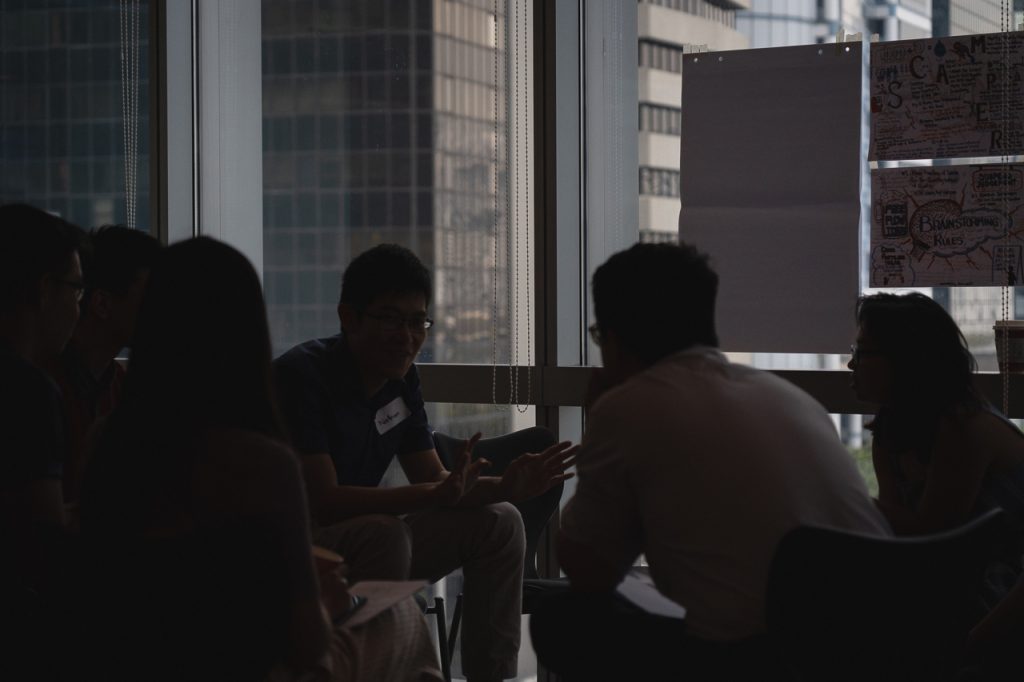
Over the last few months, together with the SG YAP panel members, about 40,000 youths were engaged through various means including focus groups and using digital tools like polls, surveys and articles. Many issues and concerns like environment, inclusiveness, equality, cost of living, mental health, jobs and many more were raised.
But it’s not all talk and no action. From these Youth Conversations, NYC discovered that younger Singaporeans wanted to be the change they wished to see in the world. They wanted to make a difference. Thus, the Youth Action Challenge (YAC) was born, as a platform for youths to take action through making possible policy recommendations or start ground up initiatives with the guidance and support of mentors. This year’s YAC started with three broad themes first – environment, societal issues and future of work.
Anyway, following the voice’s orders, I head for the group nearest to me. There, I meet Abdullah Khurshid, a 20-year-old full-time National Serviceman.
Explaining that they’ve decided to focus on workers currently in jobs that have low human capital development (which consequently prevents them from providing high value-added services), Abdullah’s group hopes to prevent these folks from being made redundant due to either the unpredictability of the future, or an ever-changing economic landscape.
For a prime example of this, think of food delivery riders who might have to find other means of employment thanks to the ban of PMDs on footpaths.
“With the rise of AI, autonomous vehicles, and robotics, there are many jobs at risk of being replaced by technology. If these workers aren’t versatile enough, they’d fall under prolonged unemployment, which will, of course, lead to many more serious problems. I think it’s important to adapt early so you face the snowball rather than the avalanche,” he tells me.
As such, the group is working on coming up with a more human-centric approach that’ll allow for more Singaporeans to upskill and upscale. They acknowledge that SkillsFuture Singapore and Workforce SG already boast a host of comprehensive initiatives though, but more can be done to make the transition smoother.
One of their proposed solutions includes possible one-to-one mentorships from those who have ‘been there, done that’; people in very similar economic situations who have successfully upskilled. By adding more of the human element, they hope that these folks will be more motivated and believe that it’s possible, not to mention necessary.
All of this, would then translate to an increased likelihood of these workers not only voluntarily improving their employability, but also following through with the process.
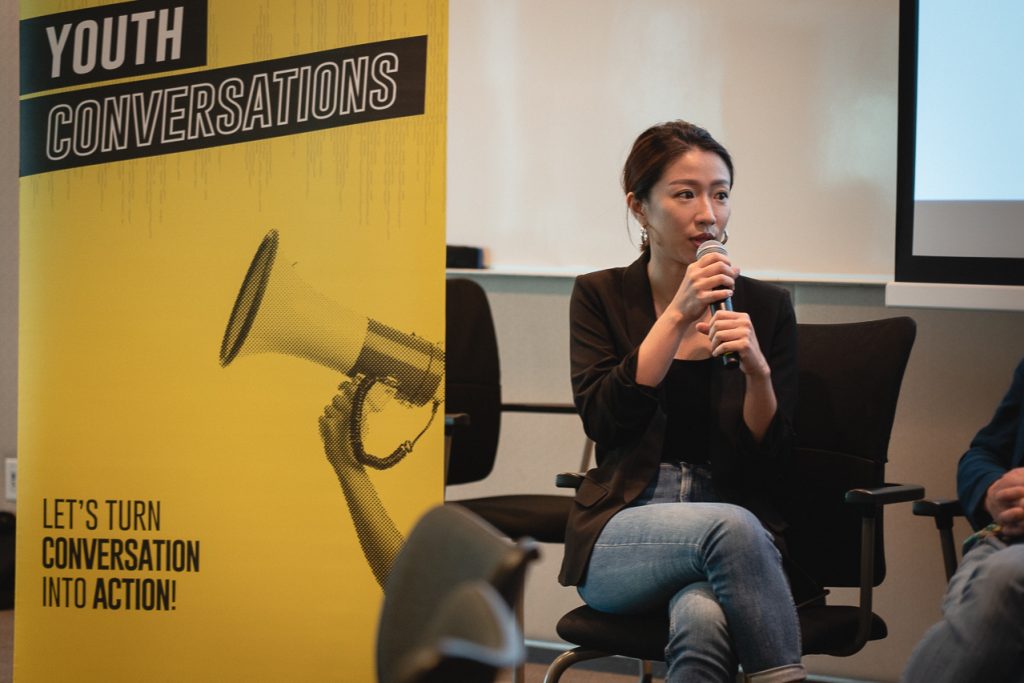
The panellists are: Mr Jesher Loi, director for branding and market development Ya Kun International Pte Ltd; Ms Rachel Lim, co-founder of the wildly successful fashion label, Love, Bonito; Ms Carmen Low, co-founder of Getai Group and Afterglow; and Mr Brandon Lee, the group director, transformation support group, Workforce Singapore.
The questions fly thick and fast. And everything—from how traditional businesses ensure technology doesn’t replace their ageing workforce, to the eco-sustainability of fast fashion—is discussed in the next hour.
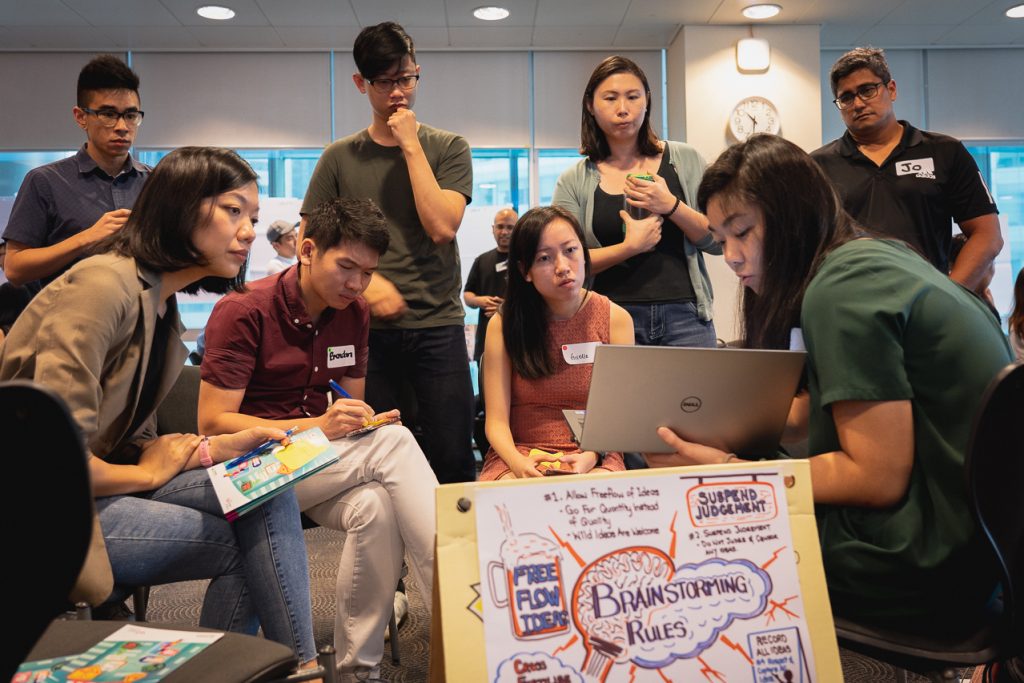
As a volunteer with Business China Youth Chapter (BCYC), a non-profit organisation which aims to inspire youths to be China-savvy and facilitate connections with China, Veronica found out about the YAC and decided to sign up owing to her already strong interest in youth empowerment.
“I chose the economy track because a lot of the challenges pertaining to the future of work are extremely relevant to people like me who will soon be entering the job market. That said, I feel that these important and pressing issues are often overlooked by us students.
One example of these issues would be the lack of perceived importance in global opportunities amongst undergraduates, especially towards economic opportunities in the ASEAN region. This would of course, then affect their career readiness.
Indeed, when it comes to venturing abroad in search of better career prospects, it seems youths tend to place a higher premium on employment in the western world, dreaming to work for companies like Google or Facebook, instead of Alibaba or Baidu.
This is not just conjecture. In a survey conducted by NTUC on youth career readiness, it was found that majority of the 1,300 youths polled had a low preference for working in other ASEAN countries besides Singapore. And yet, the results of a survey done by Veronica and her group mates reflected that despite a lower priority in seeking global opportunities, students still value the importance of career readiness when considering career options.
So the question is: with ASEAN countries and their trading partners making up roughly a third of the world’s population and global gross domestic product, what can be done to ensure students—who may not even be aware of ASEAN’s immense economic opportunities—develop the relevant competencies to better prepare them for the road ahead?
Well, according to Veronica and her group, the answer is the creation of a student organisation tentatively called ‘Business ASEAN Youth Chapter’, whose objective is to prepare students with the right competencies to work with, or in ASEAN enterprises. But this is not a one-way street. With a better prepared and more competent and young workforce, Veronica and her group mates are also hoping that ASEAN enterprises will recognise the value in investing in the organisation, which will then further enhance the quality of Singaporean’s talent export.
“‘Business ASEAN Youth Chapter’ could potentially serve as a one-stop platform which incorporates services such as mentorship, career planning workshops, and youth expeditions, all of which enables youths to better prepare for the future,” Veronica tells me excitedly.
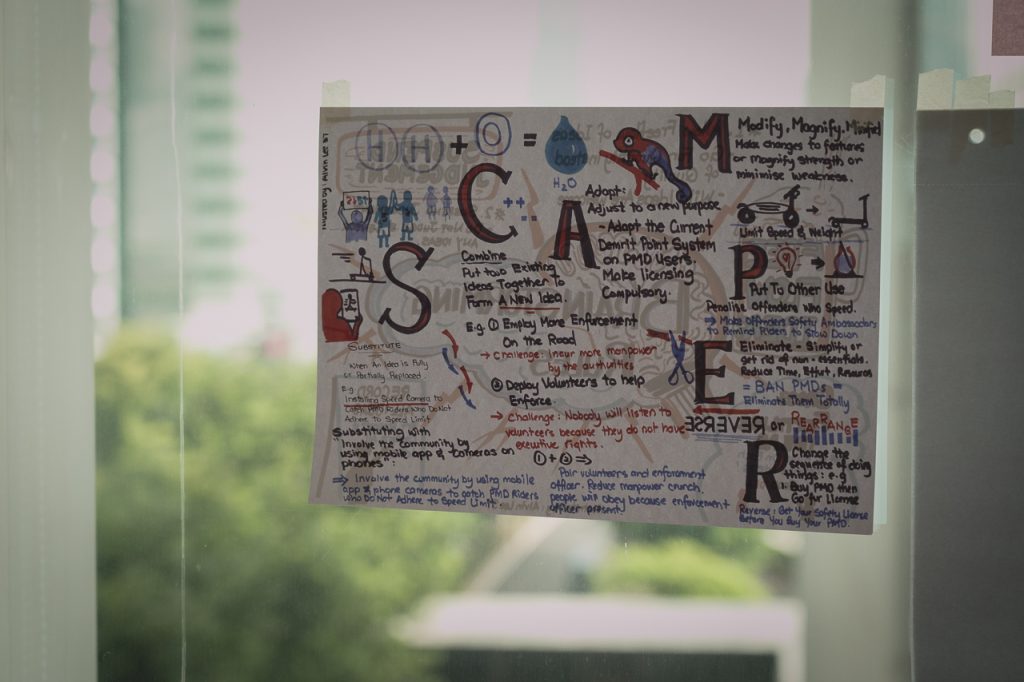
What stands out is that these youths even care at all; that they were there not because they had to be, but because they wanted to be. Out of their own free will, bright and early on a Saturday morning, no less.
Following lunch, groups were combined, with mentors helping them to explore their ideas and guiding them towards coming up with more concrete ways of putting their solutions to use. This entire process lasted until the event ended at 3 PM. And I use the term “ended” very loosely.
Only a tiny handful of people left. Everyone else sat around debating the efficacy of the ideas they suggested. Some approached other mentors for more guidance. And even though this might only be 1 out of the many sessions in the different tracks, I’d like to think other meetings ended in a similar fashion, with no one really wanting to go.
Millennials get a lot of flak for being self-centred, with Time magazine famously calling them the ‘me me me’ generation. Forbes jumped on the millennial-bashing bandwagon too, labelling them entitled thanks to their constant job-hopping and inability to stick it out when the going gets tough.
But based on everything I witnessed today, this couldn’t be further from the truth. They’re not apathetic towards what’s happening around them. They care—not just about themselves, but society as a whole.
Lest we forget, in past surveys conducted by Milieu Insight (an independent research company) it was found that the youth of today care deeply about the environment, with over 95% believing that climate change is a problem that needs to be addressed ASAP. On the issue of social inequality, an overwhelming 96% of respondents believed that there should be equal opportunities in education and career for all. Furthermore, the increasing number of student activists prove that youths are seriously thinking about the kind of world they want to live in.
Better still, they’re actively doing something to make this country a better place for everyone.
The future of Singapore then, is in good hands—hands that may not be wrinkled with age, but nevertheless filled with the desire and ability to create something meaningful for society.
Together with Singapore’s youths, the SGYAP panel is crafting a youth vision for Singapore in 2025, and we want to hear from you. Share your views on your vision for Singapore, and explore what other youths have had to say here.

